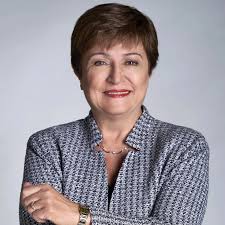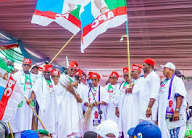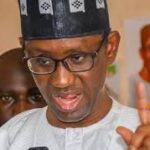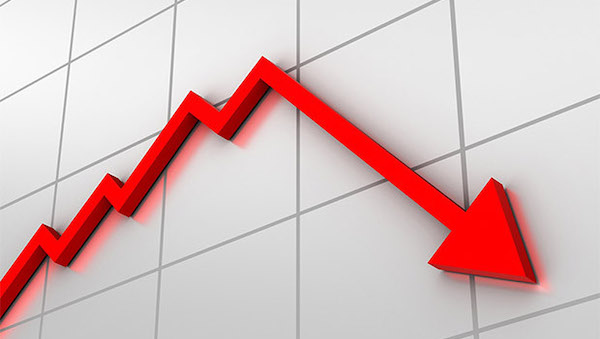IMF MD, Georgieva Regrets Comments on Nigeria’s Economic Policies

Kristalina Georgieva, Managing Director of the International Monetary Fund (IMF), has expressed regret over recent comments critical of Nigeria’s economic policies following a direct challenge from Senator Jimoh Ibrahim at a meeting in Washington D.C.
The exchange highlights a growing tension between the IMF and the Nigerian government over the impact of ongoing reforms on the country’s most vulnerable citizens.
Senator Ibrahim, representing the Nigerian Senate at the World Bank Parliament, confronted Georgieva, accusing the IMF of making “negative comments…that lack supporting data” regarding Nigeria’s economic performance under President Bola Ahmed Tinubu.
He specifically questioned what he perceived as unfair criticism of Tinubu’s reforms implemented since taking office in 2023, pointing to progress in areas like tariff regulation, revenue-to-GDP ratio improvements, and debt repayment.
“Madam IMF, is it appropriate for the IMF to make untruthful comments about the domestic economy? Is the IMF the entity managing the economy?” he reportedly asked.
He argued that the IMF should acknowledge and support Tinubu’s “noble economic initiatives,” framing them as a potential success story for the entire African continent.
The Senator’s strong rebuke appears to have prompted a concession from Georgieva, who responded, “We shall be mindful of our comments on Nigeria from now on. We are your IMF; we are sorry again.” Ibrahim accepted the apology on behalf of Nigeria.
The exchange follows recent IMF calls for the Nigerian government to prioritize social safety nets, particularly the completion of its cash transfer program, to cushion the impact of economic reforms on the poorest citizens. Julie Kozack, Director of the IMF’s Communications Department, recently emphasized the urgency of completing the rollout of these transfers, highlighting the “extremely difficult situation” many Nigerians face.
The IMF’s concerns stem from the potential for increased hardship as the government implements reforms aimed at stabilizing the economy and boosting growth. The Fund has consistently urged expansion of the cash transfer program, particularly to rural areas, as a crucial response to rising poverty and food insecurity. The World Bank has echoed these concerns, stating that cash transfer programs are vital for breaking cycles of intergenerational poverty.
This isn’t the first time the IMF has focused on Nigeria’s social safety net. Last year, the Fund advised extending the cash transfer to rural areas. Recent visits from high-ranking IMF officials, including First Deputy Managing Director Gita Gopinath in March, demonstrate the institution’s continued engagement with Nigeria’s economic trajectory and its impact on vulnerable populations.
While the IMF maintains its focus on long-term economic stability, Senator Ibrahim’s challenge signals a desire for greater recognition of the Tinubu administration’s efforts and a sensitivity to potential criticism that could be perceived as undermining investor confidence or hindering domestic economic management.
The incident raises questions about the dynamic between international financial institutions and sovereign nations navigating complex economic reforms.









